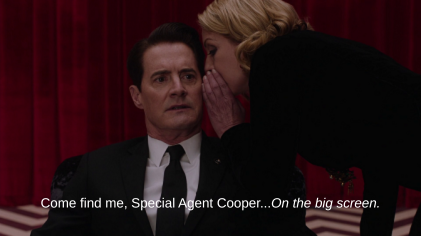Twin Peaks: The Return Premiered with Die-Hard David Lynch Fans at NWFF
Nighttime outside Northwest Film Forum
The Evergreen Echo
**No spoilers in this piece**
Twin Peaks, and indeed the entirety of David Lynch’s oeuvre, was and will always be a communal experience for me. I saw my first David Lynch movie, Mulholland Drive, in an almost-sold-out screening at the SIFF Egyptian in 2023. From then, I watched Blue Velvet, Inland Empire, Eraserhead, and more, reporting my jumbled but inspired thoughts, theories, and emotions back to more senior Lynch fans and friends. Though an endlessly long watchlist prevented me from visiting the humble, beloved town of Twin Peaks, Lynch’s passing in 2025 awakened the urgency to make the trip. Two regulars at my coffee shop (thank you, Megan and Sara!), lent me a stay at the Great Northern Hotel in the form of a complete blu-ray set of the series.
Image from Twin Peaks
via Wikimedia Commons


